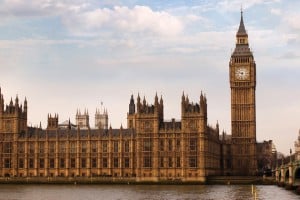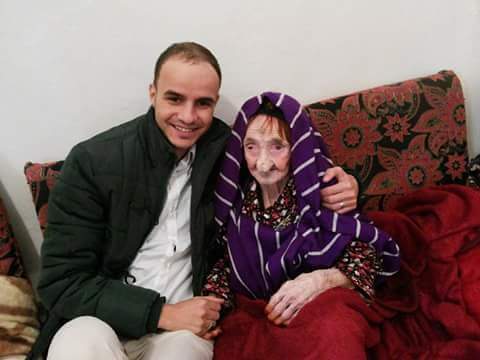By Hadi Fornaji, Tunis.

14 September 2016:
A UK parliamentary investigation into the British and western intervention in Libya in 2011 and international involvement with the country since then has lambasted British policy as being based on inadequate intelligence and a lack of an understanding of Libya. In a report published today, it suggests that the intervention should not have take place.
Critical also of UNSMIL’s performance in Libya, it also questions whether the UN is the appropriate body community to co-ordinate stabilisation and reconstruction in any post-conflict environment. Instead, the report calls for an international investigation initiated by the British foreign office to see whether alternatives could be more effective.
Declaring that the UK’s policy towards Libya was handicapped from the start by a lack of knowledge about Libya’s tribal relationships and the various influences within the country, particularly about presence of Islamists among the revolutionaries and their to use the revolution to take over the country, the report puts a large part of the blame for intervening in the first place on France which, it said, the British government willingly followed. For its part, French policy was based on President Nicolas Sarkozy’s political interests and ambitions.
The report also suggests that Qaddafi would not have carried out massacres in Benghazi in March 2011 if his forces had reached the city, as France warned and was widely believed at the time.
Dismissing Qaddafi’s notorious “Zenga-Zenga” threat to go into every street, every alley, and take revenge on people in Benghazi as mere rhetoric, the report says a possible massacre of civilians in Benghazi “was not supported by the available evidence”. Qaddafi forces did not take violent retribution against civilians in towns and cities on the road to Benghazi it declares, and adds that there were no massacres at Ajdabiya when his forces passed through – but fails to note that almost all the population had already fled to Benghazi at that point, and that only pro-Qaddafi elements remained.
It likewise suggests there was an ill-thought out but constantly changing agenda towards Libya at the time of the revolution.
“We have seen no evidence that the UK Government carried out a proper analysis of the nature of the rebellion in Libya.”
Even though the report admits there were fears at the time that Qaddafi might massacre people in Benghazi, fuelled by memories of what had happened in the Bosnian capital of Srebrenica, it says there was then an inexorable move by the Western allies from protection of civilians in Benghazi to the removal of Qaddafi and regime change.
It says that after the initial bombing of Qaddafi’s forces secured their retreat from Benghazi there should have been a pause to explore political options, such as dialogue with Qaddafi or with Saif Al-Islam. Again the French are blamed. It did not happen because “the French military had not built such a pause into its strategy”. Whether such engagement would have worked is unknown, the reports says, but the possibilities “should have been seriously considered at the time”.
The UK government of former prime minister David Cameron is further slated for abandoning “a decade of foreign policy engagement [with Qaddafi], which had delivered some successes in relation to co-operation against Islamist extremism, improved British-Libyan relations, decommissioned weapons of mass destruction, collaboration on managing migration from North Africa and commercial opportunities for UK businesses”.
There is criticism too for the US. It was Washington, the report says, which “was instrumental in extending the terms of Resolution 1973 beyond the imposition of a no-fly zone to include the authorisation of “‘all necessary measures’ to protect civilians”.
After the UK and France persuaded the US to support Resolution 1973, which was to call for a no-fly zone over Libya, it was President Obama who noted that a no-fly policy alone would not stop Qaddafi. “This led to the imposition of a ‘no-drive zone’ and the assumed authority to attack the entire Libyan Government command and communications network.”
With regard to Libya since the revolution, there is implicit criticism of the the west’s policy towards the country as it descended into instability and rivalry, again because of a basic lack of understanding of the country.
The chairman of the foreign affairs committee which produced the report, Crispin Blunt, told the BBC that there had been no policy to support and shape Libya after Qaddafi.
“The result was political and economic collapse, inter-militia and inter-tribal warfare, humanitarian and migrant crises, widespread human rights violations, the spread of Gaddafi regime weapons across the region and the growth of Isil [the so-called Islamic State] in North Africa.”
He blamed the former British prime minister. “David Cameron was ultimately responsible for the failure to develop a coherent Libya strategy.”
There is implicit but strong criticism too of the UN and the UN Support Mission in Libya. Damning with faint praise, the report notes that “the United Nations performed most effectively in its role co-ordinating and overseeing elections to the new democratic assembly, the General National Congress”.
It quotes with evident approval the assessment from former British ambassador to Libya, Sir Dominic Asquith, that “it would have been more helpful if the UN had been more prescriptive in identifying the priorities for a Libyan Government.”
The report then suggests that the British foreign office “should lead the international community to review whether the United Nations is the appropriate body to co-ordinate stabilisation and reconstruction in a post-conflict environment and whether it has the appropriate resources, and if not to identify alternatives that could be more effective.
“Such a review is a practical and urgent requirement, because the United Nations might be asked to co-ordinate a similar mission in Syria, Yemen or Iraq in the near future,” it says.
Despite the criticism of the UK, France, the US and the UN, the report however, firmly endorses the Libyan Political Agreement that they all support.
“The immediate crisis means that the international community must focus on establishing the authority of the GNA,” it says. Although “regional actors are currently undermining the GNA by flouting the United Nations arms embargo and using Libyan militias as proxies” (implicit criticism of Egypt, the UAE, Turkey and Qatar which have supported different sides in the post-revolution crisis), the GNA “is the only game in town”, it insists.
“If it fails, the danger is that Libya will descend into a full-scale civil war to control territory and oil resources. The international community must support the United Nations and the people of Libya by uniting behind the GNA; the alternative is political fragmentation, internecine violence, economic collapse and even more human suffering.”







